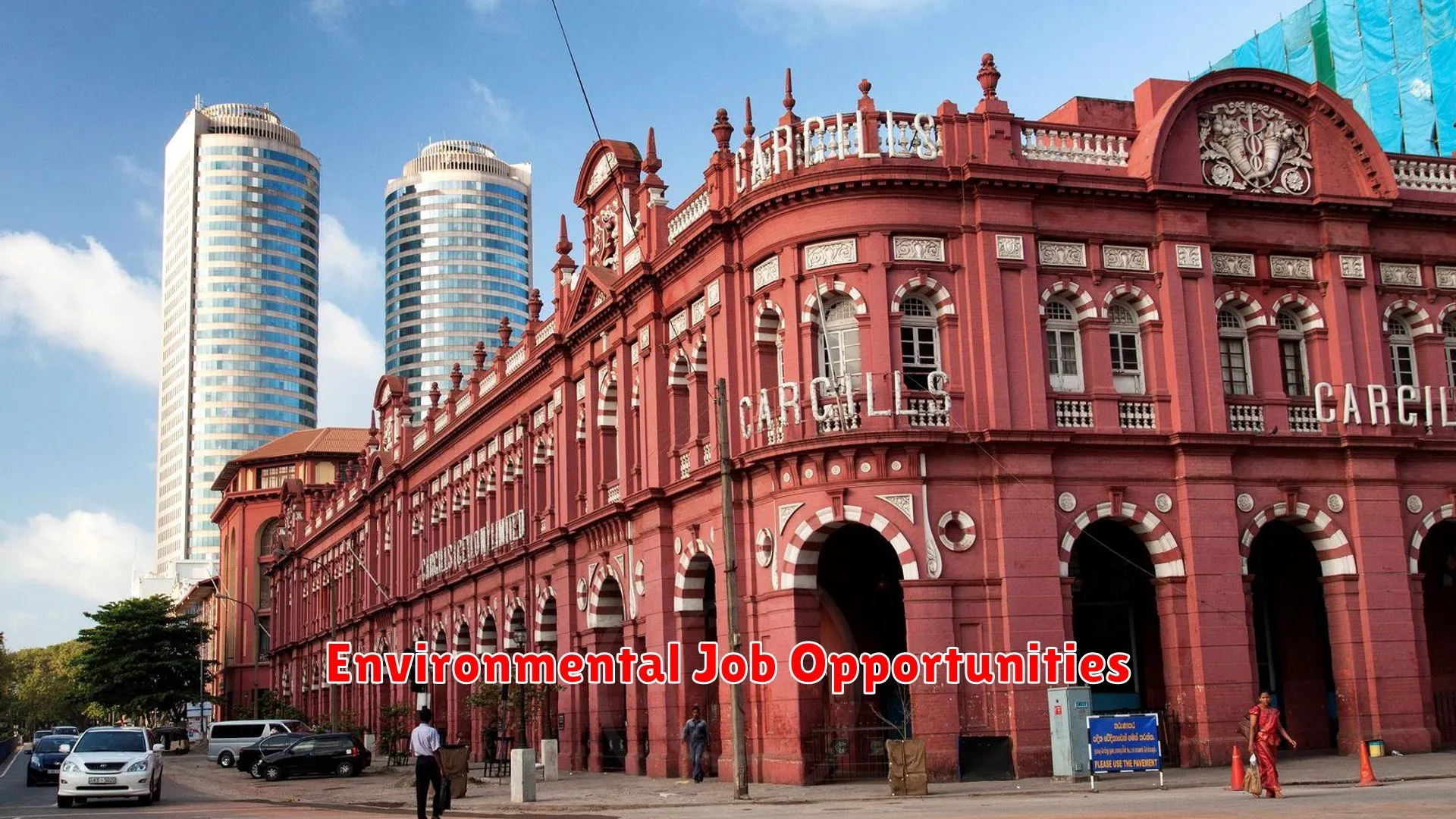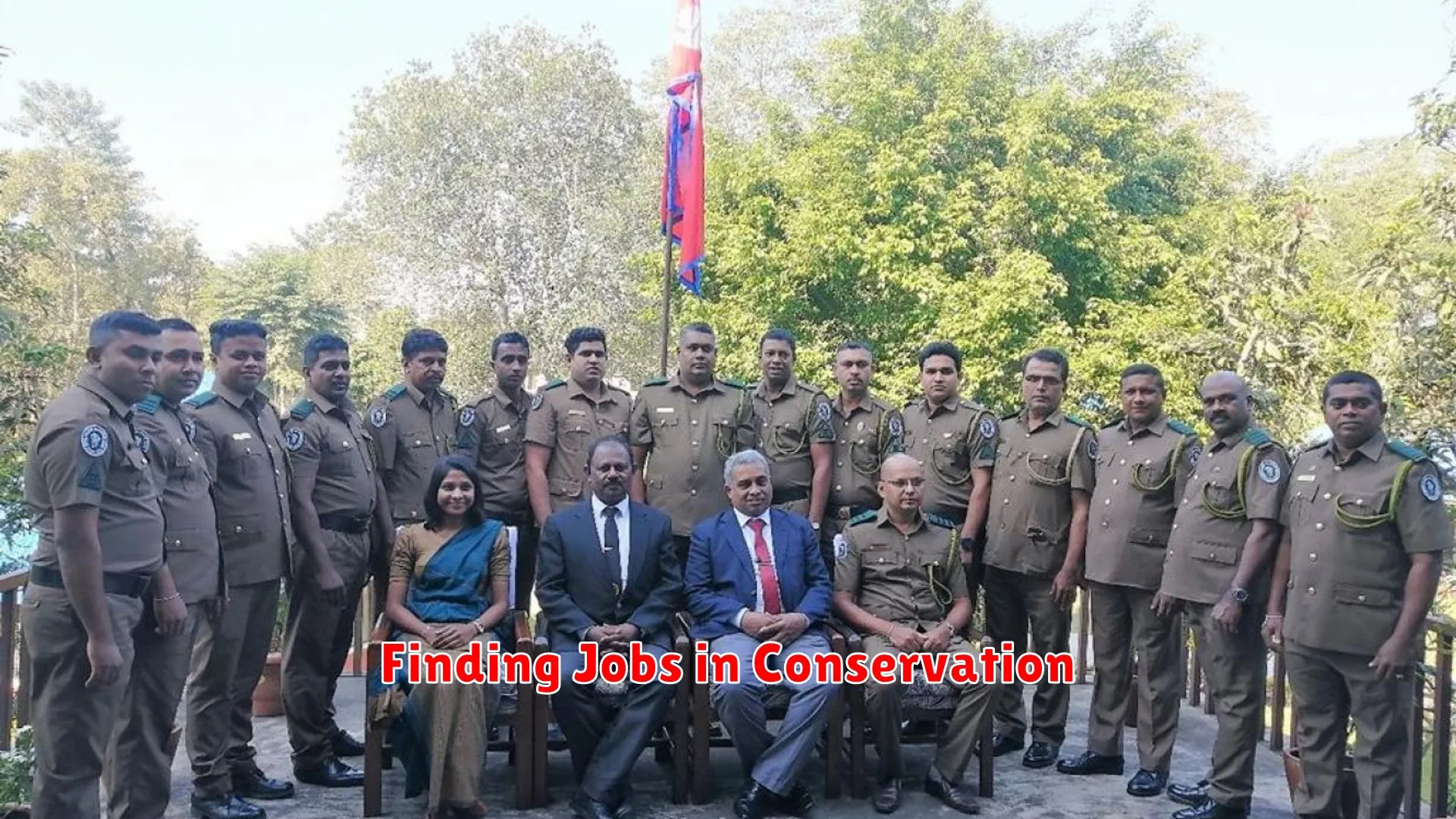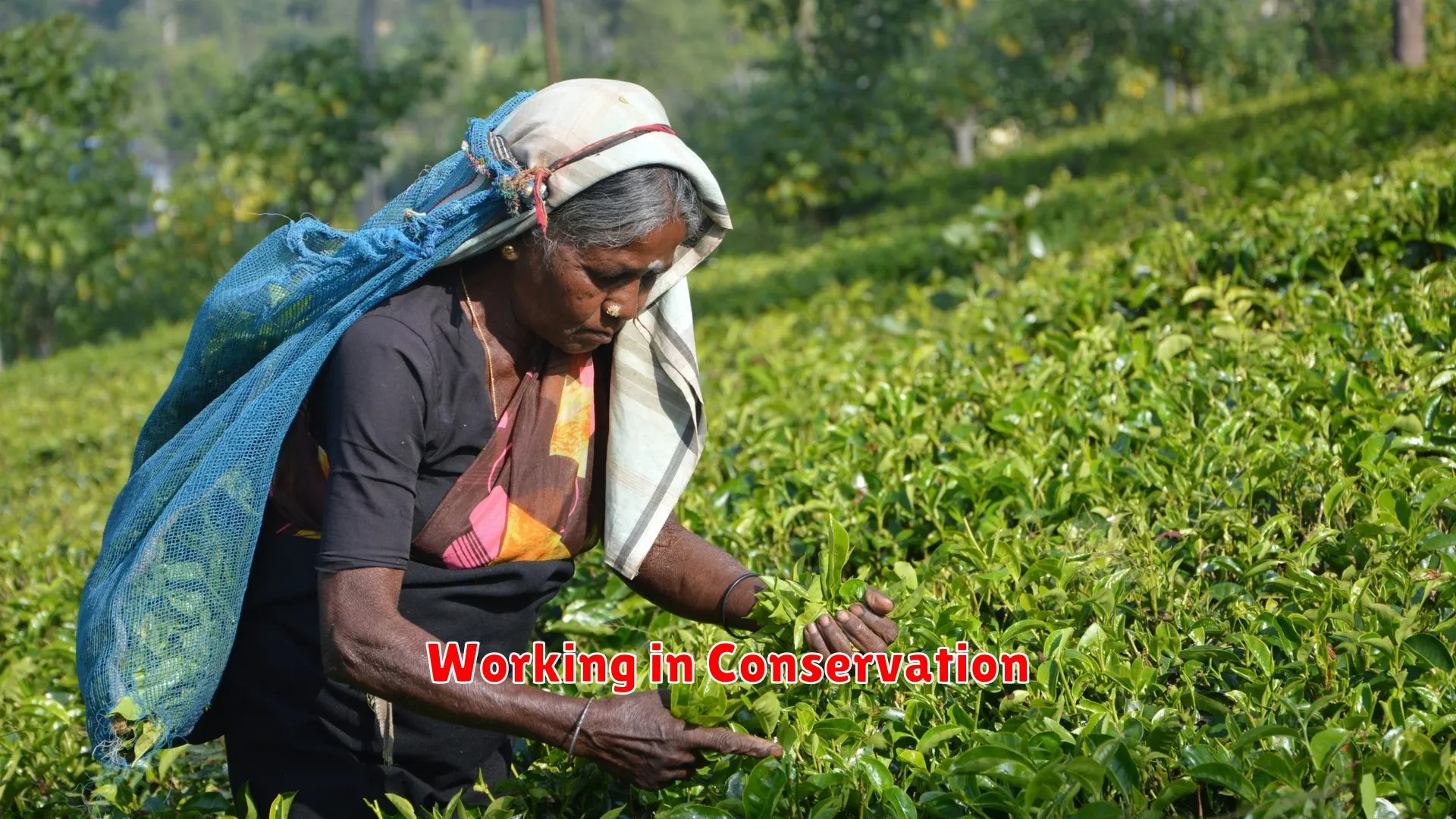Explore the dynamic opportunities awaiting those passionate about environmental conservation in Sri Lanka. From biodiversity research to sustainable development projects, discover how to pave a fulfilling career path in the country’s thriving conservation sector.
Conservation Sector Overview
When considering a career in Sri Lanka’s environmental conservation sector, it is essential to have a comprehensive understanding of the industry landscape. The conservation sector in Sri Lanka is diverse and dynamic, offering a range of opportunities for individuals passionate about protecting the environment and preserving natural resources.
Key aspects of the conservation sector in Sri Lanka include:
- Biodiversity Conservation: Sri Lanka is known for its rich biodiversity, with diverse ecosystems ranging from lush rainforests to marine environments. Conservation efforts focus on protecting endemic species, preserving habitats, and promoting sustainable practices.
- Protected Areas Management: The country boasts several national parks, nature reserves, and sanctuaries that require skilled professionals to manage and conserve these vital areas. Careers in protected area management involve monitoring biodiversity, enforcing regulations, and engaging with local communities.
- Environmental Policy and Advocacy: Professionals in this sector play a crucial role in shaping environmental policies, advocating for conservation measures, and raising awareness about critical environmental issues. Policy analysts, researchers, and advocates work towards implementing regulations to safeguard Sri Lanka’s natural heritage.
Moreover, career opportunities in the conservation sector are diverse, ranging from fieldwork and research to advocacy and policy development. Professionals can specialize in areas such as marine conservation, wildlife biology, sustainable tourism, and climate change adaptation, each contributing to the broader goal of environmental protection.
By understanding the Conservation Sector Overview in Sri Lanka, aspiring conservationists can gain insight into the challenges and opportunities within the field. Building a successful career in the environmental conservation sector requires a commitment to continuous learning, collaboration with stakeholders, and a passion for environmental stewardship.
Environmental Job Opportunities

In the vibrant field of environmental conservation in Sri Lanka, there are abundant job opportunities available for individuals passionate about protecting the environment and promoting sustainability. Whether you are a recent graduate, a mid-career professional looking for a change, or a seasoned expert in the field, there are various roles you can explore within the environmental sector.
1. Environmental Researcher
As an environmental researcher, you can work on projects related to biodiversity conservation, climate change adaptation, or sustainable resource management. Your work may involve conducting field studies, collecting data, and analyzing findings to support evidence-based environmental policies and practices.
2. Conservation Officer
Conservation officers play a crucial role in protecting wildlife, habitats, and natural resources. They work closely with local communities, government agencies, and conservation organizations to develop and implement conservation initiatives, monitor wildlife populations, and enforce environmental regulations.
3. Environmental Educator
Environmental educators are responsible for raising awareness about environmental issues, promoting sustainable practices, and inspiring individuals to take action for the planet. You can work in schools, NGOs, or environmental centers, designing and delivering educational programs for diverse audiences.
4. Sustainable Development Specialist
As a sustainable development specialist, you can focus on integrating environmental considerations into economic and social development projects. Your role may involve assessing environmental impacts, developing green technologies, or collaborating with stakeholders to achieve sustainable development goals.
5. Environmental Policy Analyst
Environmental policy analysts play a key role in shaping environmental policies and regulations at local, national, and international levels. By conducting research, analyzing data, and providing recommendations, you can influence decision-making processes and advocate for stronger environmental protection measures.
These are just a few examples of the diverse career paths available in Sri Lanka’s environmental conservation sector. By pursuing a career in this field, you can make a meaningful impact on the environment, contribute to sustainable development, and help create a greener and more sustainable future for generations to come.
Required Skills for Conservation Jobs
Building a successful career in Sri Lanka’s environmental conservation sector requires a diverse set of skills to effectively contribute to the protection and preservation of the country’s rich biodiversity. Here are some of the key skills that are essential for conservation jobs:
1. Strong Understanding of Environmental Issues
Having a deep knowledge and understanding of environmental challenges facing Sri Lanka, such as deforestation, wildlife conservation, and climate change, is crucial for individuals pursuing conservation jobs in the country.
2. Fieldwork and Research Skills
Proficiency in conducting fieldwork, collecting data, and analyzing research findings are vital skills needed in conservation jobs. This involves the ability to work in diverse environments and utilize research tools effectively.
3. Communication and Advocacy
Strong communication skills are essential for conservationists to effectively communicate their research findings, engage with local communities, and advocate for environmental protection measures. Being able to communicate in local languages is also advantageous.
4. Project Management
Conservation jobs often involve managing projects aimed at protecting natural resources and wildlife. Project management skills, including planning, budgeting, and implementation, are necessary to ensure successful conservation initiatives.
5. Collaboration and Networking
Working collaboratively with various stakeholders, such as government agencies, NGOs, and local communities, is crucial for conservation professionals. Building a strong network and partnerships can enhance conservation efforts and ensure sustainable impact.
6. Adaptability and Resilience
Given the dynamic nature of environmental conservation work, individuals need to be adaptable and resilient in the face of challenges and setbacks. The ability to problem-solve and think critically is essential for success in conservation jobs.
Finding Jobs in Conservation

Building a career in Sri Lanka’s environmental conservation sector offers opportunities for those passionate about preserving the country’s rich biodiversity. If you are seeking employment in conservation in Sri Lanka, here are some steps to help guide you in finding the right job:
- Educational Background: Obtain a relevant degree in fields such as environmental science, biology, forestry, or conservation biology. Having a strong educational foundation is essential for securing conservation jobs.
- Gain Experience: Look for internships or volunteer opportunities with local conservation organizations or national parks. Practical experience in the field will enhance your resume and skills.
- Networking: Attend workshops, conferences, and events related to conservation to network with professionals in the industry. Building connections can open up job opportunities and provide valuable insights.
- Stay Informed: Keep up-to-date with current conservation issues and developments in Sri Lanka. Understanding the local context and challenges will make you a more competitive candidate for conservation positions.
- Job Portals: Utilize online job portals and websites that specialize in environmental conservation job postings. Regularly check for job listings and tailor your application to match the requirements.
- Government and NGO Opportunities: Explore job opportunities with government agencies, non-governmental organizations (NGOs), and research institutions dedicated to conservation efforts in Sri Lanka. These organizations often have openings for conservation roles.
- Continued Learning: Pursue additional certifications or courses related to conservation to enhance your skills and marketability in the field. Continuous learning demonstrates your commitment to your conservation career.
Environmental Job Interview Tips
When preparing for a career in Sri Lanka’s environmental conservation sector, it’s important to also focus on excelling in job interviews. Here are some valuable tips to help you showcase your potential and passion for environmental work:
- Research the Organization: Before the interview, make sure to thoroughly research the environmental organization you are applying to. Understand their mission, projects, and recent initiatives to show that you are well-informed and invested in their work.
- Highlight Your Relevant Experience: During the interview, emphasize any work experience, internships, or volunteer roles that demonstrate your commitment to environmental conservation. Be prepared to share specific examples of projects you have worked on.
- Showcase Your Skills: Clearly communicate how your skills, such as project management, data analysis, or field research, align with the requirements of the position. Provide concrete examples of how you have used these skills effectively.
- Discuss Your Passion for Environmental Conservation: Express your genuine passion for protecting the environment and your commitment to making a difference. Share personal anecdotes or experiences that have shaped your environmental values.
- Prepare for Behavioral Questions: Anticipate interview questions that focus on your past behavior and experiences. Practice answering situational questions that showcase your problem-solving abilities and teamwork skills.
- Ask Thoughtful Questions: Prepare insightful questions to ask the interviewer about the organization’s future projects, community engagement efforts, or opportunities for professional growth. This demonstrates your genuine interest in the role.
- Dress Professionally and Arrive Early: Make a positive first impression by dressing professionally for the interview. Arrive early to show that you are punctual and respectful of the interviewer’s time.
By incorporating these environmental job interview tips into your preparation, you can increase your chances of standing out as a strong candidate in Sri Lanka’s environmental conservation sector.
Working in Conservation

Working in the environmental conservation sector in Sri Lanka offers a wide range of opportunities for individuals passionate about preserving the country’s rich biodiversity and natural resources. This field requires a deep commitment to sustainability and a desire to make a positive impact on the environment.
Research and Fieldwork: Conservation professionals in Sri Lanka often engage in hands-on research and fieldwork to monitor wildlife populations, study habitats, and assess the impact of human activities on ecosystems. Fieldwork allows conservationists to gather valuable data that informs conservation efforts.
Community Engagement: Collaboration with local communities is a crucial aspect of conservation work in Sri Lanka. Building relationships with communities near protected areas is essential for promoting sustainable practices and garnering support for conservation initiatives.
Policy Advocacy: Professionals in the environmental conservation sector play a key role in advocating for policies that protect natural habitats and endangered species. Engaging with government agencies and policymakers is vital in shaping conservation strategies and influencing environmental regulations.
Education and Outreach: Educating the public about the importance of conservation is fundamental to fostering a culture of environmental stewardship in Sri Lanka. Conservationists often conduct outreach programs, workshops, and awareness campaigns to raise awareness about conservation issues.
Conclusion
In conclusion, forging a career in Sri Lanka’s environmental conservation sector offers significant opportunities for individuals passionate about sustainability and biodiversity, contributing to a greener and more sustainable future for the island nation.
















